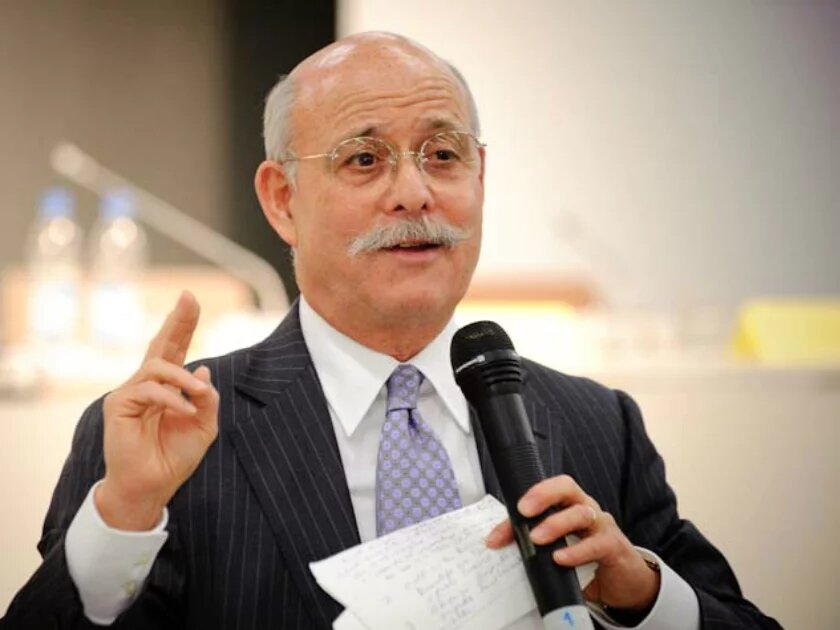
Confidence that policy-makers will use crises as opportunities for qualitatively new things has been deeply shaken, and individual national interests block international cooperation and solutions to crises. So the question arises not only as to what national policies must achieve on their own if necessary, but also how people themselves can shape their lives in new ways, encouraging others to do so as well, and can bring policy-makers to change course.
Germany's phase-out of nuclear power and an ambitious program to expand renewables are considered good examples of a nation going it alone. They are test cases for whether and how an industrialized country can succeed in maintaining prosperity while phasing out the fossil-fuel-based model and heralding the beginning of the "Third Industrial Revolution" (Jeremy Rifkin 2011). Rifkin characterizes it as the synergy of three elements: the Internet, a new matrix of renewables, and the restructuring of previously centralized and vertically organized social relationships into "peer-to-peer relationships." This combination is to enable a new mode of production: decentralized production among equals, a peer economy.
The separation of producers and consumers is brought to an end
Now, Jeremy Rifkin has taken the next step. In his new book "Zero Marginal Cost Society," he describes how the "Internet of Things" may bring those additional costs that arise when one produces an additional unit of a product - these are called marginal costs - to near zero. He connects this with an enormous increase in the importance of the not-for-profit sector and of civil society, the rise of the "collaborative commons," and a form of economic activity in which the separation between producers and consumers is overcome by the emergence of the "prosumer." For example, prosumers can use 3-D printer technology to produce what they really need or to repair things not worth repairing according to the logic of the market.
Rifkin refers to a paradox that initially made capitalism appear unchallenged, but now suggests its demise as the prevailing system: competition and price wars have been inherent features up to now. However, if the interaction of new technological and social infrastructures reduces marginal costs to such an extent that goods and services are (or could be) available in abundance, then they can elude traditional market forces. This is not an automatic development, for the old questions remain: Who owns the land? Who controls the infrastructure and the means of production? Who advances the development of the productive forces and in whose interest? The old, new forms of the commons economies require protection and a legal framework within which they can flourish. As always in the course of history, the new and the old are struggling for and against the new order gaining ground. And that is why we are witnesses of the intensification of the struggle for market shares and access to resources as well as the concentration of power.
The transformation has been set in motion and is unstoppable
But the fundamental trend has passed the point of no return: the emergence of a hybrid system of capitalism and commons economies. After all, if this trend prevails for an increasing number of goods and services, then business models both with and without a profit motive and based on sharing will become more and more competitive, for example, car sharing or Airbed and Breakfast (Air BnB), as well as open universities and Internet-based learning opportunities. Rifkin sees a "rise in anti-capitalism" in all of these developments. It will still take place within the old system for a while. But the transformation has been set in motion and is unstoppable.
Not least because the number of people in gainful employment following the models still dominating today will continue to decrease. Labor as a good is losing significance. There will be more opportunities for working autonomously and more time for work serving one's own development and subsistence.
Nonetheless, value creation through gainful employment is still the only basis for calculating gross domestic product, while privately organized reproductive work remains invisible because it is inaccessible to the capitalist logic of value creation and profit. The German Federal Statistical Office has determined that 1.7 hours of unpaid work are performed for every hour of paid work. Gathering such data permits a change in thinking and finally a change in political course.
Transcending the separation of productive and reproductive labor
The trend toward zero marginal cost does not apply to the realm of care: it is impossible to feed or care for a sick or elderly person or a baby more quickly. The realm of care is excluded from macroeconomic considerations, and Rifkin does this in his book as well. Yet the fact that the relevance of not-for-profit organizations for the economy is increasing while at the same time, gainful employment is becoming less important is a major opportunity to bring care work out of the niche of private households or poor pay and to recognize it for what it is: a necessary precondition for the productive sector's value creation and thus part of it. This holds enormous potentials for a more just division of labor between the genders, even beyond the logic of services and pay, because the capitalist dictates of value creation are forced back. To an increasing extent, labor has an opportunity to serve life itself, and the activity required for this will receive just appreciation. The economy would be turned right-side up again.
Even if many political and theoretical questions remain to be resolved, we must begin and let new things grow and mature. After all, societal innovation emerges only in and through practical experience.